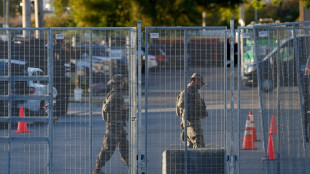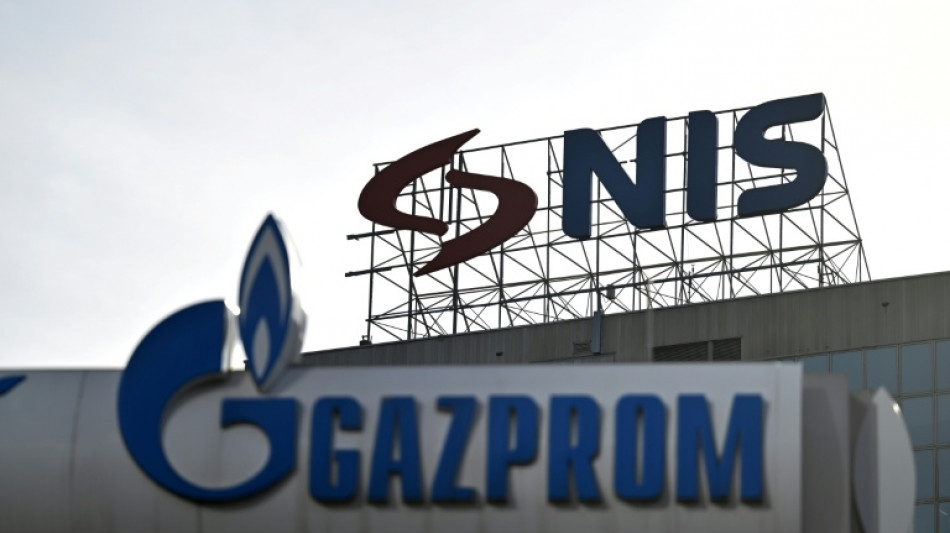
-
 Chiefs, Ravens look for spark amid early season struggles
Chiefs, Ravens look for spark amid early season struggles
-
Argentina gives Boca Juniors manager Russo emotional stadium send-off

-
 French guillotine abolitionist enters Pantheon
French guillotine abolitionist enters Pantheon
-
Amoura scores twice as Algeria qualify for 2026 World Cup

-
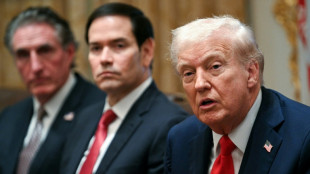 Trump eyes Egypt trip, says hostages to be freed early next week
Trump eyes Egypt trip, says hostages to be freed early next week
-
An urgent note, a whisper -- and a Gaza deal long sought by Trump
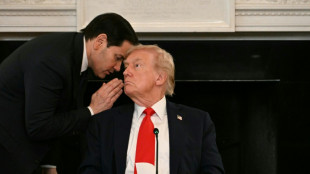
-
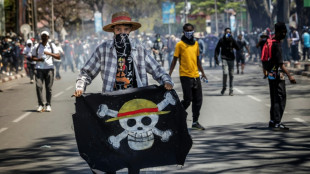 Police clash with protesters as thousands rally in Madgascar
Police clash with protesters as thousands rally in Madgascar
-
Serbia faces 'extremely serious' impacts as sanctions hit oil firm
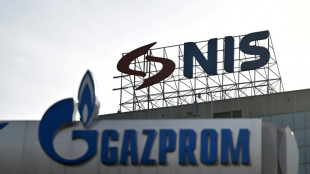
-
 Rediscovered painting shows madam of notorious Nazi brothel
Rediscovered painting shows madam of notorious Nazi brothel
-
Grave of French guillotine abolitionist defaced before Pantheon ceremony

-
 At German auto crisis meet, Merz vows to fight EU gas guzzler ban
At German auto crisis meet, Merz vows to fight EU gas guzzler ban
-
Italian athlete gets three-year ban for spying on Olympic champion Jacobs

-
 French court ups jail term for man in Pelicot rape case appeal
French court ups jail term for man in Pelicot rape case appeal
-
Rabiot backed by French players' union in row over Serie A match abroad

-
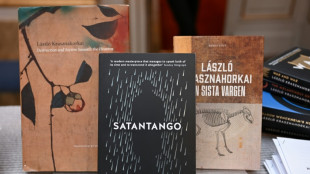 Hungary's 'master of the apocalypse' Krasznahorkai wins literature Nobel
Hungary's 'master of the apocalypse' Krasznahorkai wins literature Nobel
-
Israel says 'all parties' signed phase one of Gaza deal

-
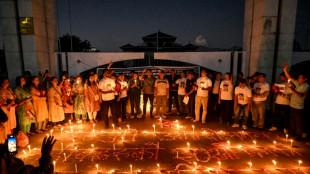 Nepal's youth vow to keep up pressure, one month after unrest
Nepal's youth vow to keep up pressure, one month after unrest
-
Princess Kate hails role of 'human connection' in children's development

-
 Israel PT cycling team to miss Lombardy Tour by 'mutual agreement': organisers
Israel PT cycling team to miss Lombardy Tour by 'mutual agreement': organisers
-
Nepal welcomes Gaza ceasefire deal, calls for citizen's release

-
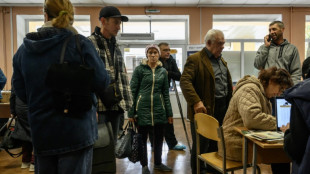 Ukraine's Zelensky says Russia seeking 'chaos' with new energy strikes
Ukraine's Zelensky says Russia seeking 'chaos' with new energy strikes
-
Police meet fresh 1,000-strong protest in Madagascar with tear gas
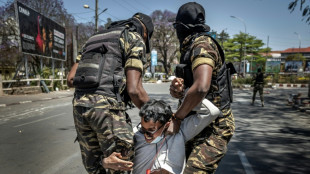
-
 Sabalenka, with help from Djokovic, and Swiatek reach Wuhan quarters
Sabalenka, with help from Djokovic, and Swiatek reach Wuhan quarters
-
Myanmar junta says it targeted rebels in deadly attack on protest
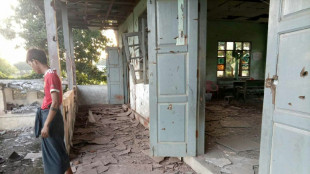
-
 Home comforts beckon as under-fire Wirtz returns to Germany duty
Home comforts beckon as under-fire Wirtz returns to Germany duty
-
Silver price hits decades high as gold rush eases
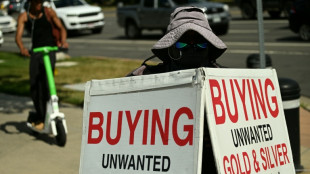
-
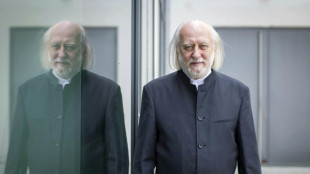 Laszlo Krasznahorkai: Hungary's 'master of apocalypse'
Laszlo Krasznahorkai: Hungary's 'master of apocalypse'
-
Monaco sack coach Hutter, line up Pocognoli: sources

-
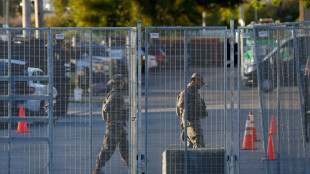 500 US troops deploy in Chicago ahead of court hearing
500 US troops deploy in Chicago ahead of court hearing
-
Djokovic to meet 204th-ranked Vacherot in Shanghai Masters semi-final

-
 UK-Balkans meet targets people-smuggling, Russian disinformation
UK-Balkans meet targets people-smuggling, Russian disinformation
-
Guillotine abolitionist Robert Badinter to enter France's Pantheon

-
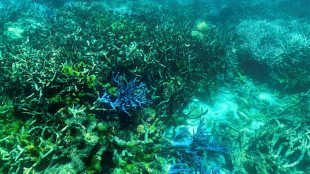 Top conservation group meets in UAE on growing threats to nature
Top conservation group meets in UAE on growing threats to nature
-
EU to probe alleged Hungarian spying
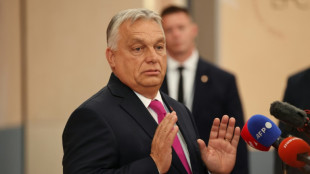
-
 Mbappe 'relaxed' and ready to play in France's World Cup qualifiers
Mbappe 'relaxed' and ready to play in France's World Cup qualifiers
-
Hungary's Krasznahorkai, 'master of the apocalypse' wins literature Nobel
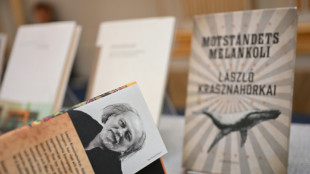
-
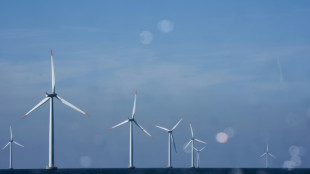 Danish wind giant Orsted to cut workforce by a quarter
Danish wind giant Orsted to cut workforce by a quarter
-
Pope hails role of news agencies in 'post-truth', AI world
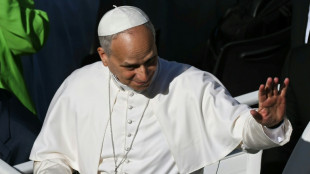
-
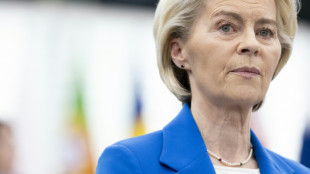 EU chief survives confidence votes in fractious parliament
EU chief survives confidence votes in fractious parliament
-
Michelin Guide gets an appetite beyond restaurants

-
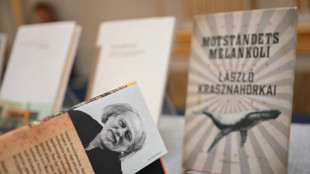 Hungary's Laszlo Krasznahorkai wins Nobel literature prize
Hungary's Laszlo Krasznahorkai wins Nobel literature prize
-
Shein's Paris store kicks up a storm in France

-
 Pope Leo puts poor, marginalised centre stage in first major text
Pope Leo puts poor, marginalised centre stage in first major text
-
French cycling sprinter Demare announces retirement

-
 'They're coming back': Israelis await return of Gaza hostages
'They're coming back': Israelis await return of Gaza hostages
-
World no. 204 Vacherot stuns Rune to reach Shanghai semi-finals

-
 India's Gill out to avoid 'mental fatigue' from constant cricket
India's Gill out to avoid 'mental fatigue' from constant cricket
-
NBA commissioner says 'tremendous interest' on return to China

-
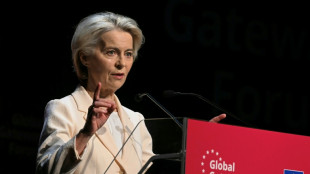 EU woos developing nations at investment forum
EU woos developing nations at investment forum
-
Double world champion Rovanpera calls time on rally career

| CMSC | -0.08% | 23.69 | $ | |
| RBGPF | -1.86% | 75.73 | $ | |
| RYCEF | 0.84% | 15.53 | $ | |
| AZN | -0.4% | 85.04 | $ | |
| NGG | -0.38% | 73.33 | $ | |
| CMSD | -0.25% | 24.27 | $ | |
| SCS | -1.57% | 16.53 | $ | |
| VOD | 0.09% | 11.28 | $ | |
| GSK | 0.21% | 43.44 | $ | |
| RELX | -1.53% | 45.15 | $ | |
| RIO | -1.04% | 67 | $ | |
| BCC | -3.42% | 73.89 | $ | |
| JRI | -0.79% | 14.01 | $ | |
| BTI | -0.47% | 51.36 | $ | |
| BCE | 0.9% | 23.44 | $ | |
| BP | -0.67% | 34.29 | $ |

Serbia faces 'extremely serious' impacts as sanctions hit oil firm
Serbia's president warned that US sanctions on the Russian-controlled operator of the Balkan nation's only oil refinery that took effect on Thursday put it in an "extremely serious" position.
The sanctions targeting Petroleum Industry of Serbia (NIS) were delayed multiple times after being first announced in January as part of its crackdown on the Russia's energy sector following Moscow's 2022 invasion of Ukraine.
President Aleksandar Vucic warned of "extremely serious consequences for our entire nation" in a television address on Thursday.
"This is bad news for our country, though expected," Vucic said hours after the sanctions took effect on the company that supplies more than 80 percent of Serbia's diesel and petrol.
Croatian pipeline operator Janaf, which supplies oil to NIS, said it would cease sending crude oil to Serbia.
But Vucic said the country had a large enough stockpile of crude oil for the refinery to operate until November 1.
Meanwhile, vehicle fuel supplies should last through the end of the year.
Vucic confirmed that talks on the company's future are ongoing with US and Russian partners.
- 'Era of jerry cans' -
NIS, in which the oil subsidiary of Russian gas giant Gazprom has a controlling stake, has warned its customers that Mastercard and Visa payment cards may stop functioning at its petrol stations due to the sanctions.
Customers may soon only be able to fill up with cards using a Serbian payment network or pay cash.
The company's central station in Belgrade was quiet on Thursday, as the head of its consumer arm told the state broadcaster there was no need for motorists to panic-buy.
"Our sales are operating as normal. There are no restrictions when it comes to the quantities customers can purchase," NIS Retail Director Bojana Radojevic said.
But Belgrade residents told AFP they were worried.
"Even if there are reserves, those reserves cannot last forever," 75-year-old Belgrade resident Rodoljub Golubovic said.
For Zoran Markovic, 48, the new measures brought back memories of the sanctions and isolation of the 1990s in war-torn Yugoslavia.
"It was the era of jerry cans and everything that went with it," he said. "It's not fair."
- Solutions -
Belgrade-based economist Goran Radosavljevic said sanctions could impact sectors ranging from finance to agriculture and affect jet fuel supply.
Energy consultant Velimir Gavrilovic said the Janaf's cutoff could mean an increase in oil transportation costs or more reliance on imported refined oil products.
A potential solution — a complete exit of Russian investors from the company — is very unlikely, Radosavljevic said.
"Russia does not want to sell its shares," Radosavljevic added, noting that although NIS represents "only a small portion of Gazprom's revenue, its political importance is huge."
But Gavrilovic suggested a "partial sale of Russian-held shares, reducing their stake in NIS to a non-controlling level," could offer a way out.
Vucic has ruled out nationalising the company, a proposal floated by some commentators.
He also rebuffed comments from Croatia's economics minister about being interested in buying the firm.
Despite Western pressure, Serbia has maintained close ties with Moscow and refused to impose sanctions, even as it pursues European Union membership.
The country remains heavily dependent on Russian gas, with its 2022 supply contract set to expire soon amid ongoing talks for a new deal.
Currently, NIS is 45 percent owned by Russia's Gazprom Neft.
Its parent company, Gazprom, transferred its remaining 11 percent stake last month to Intelligence, a St Petersburg-based firm also linked to the Russian energy giant.
The Serbian state holds nearly 30 percent, with the rest owned by minority shareholders.
S.Spengler--VB


